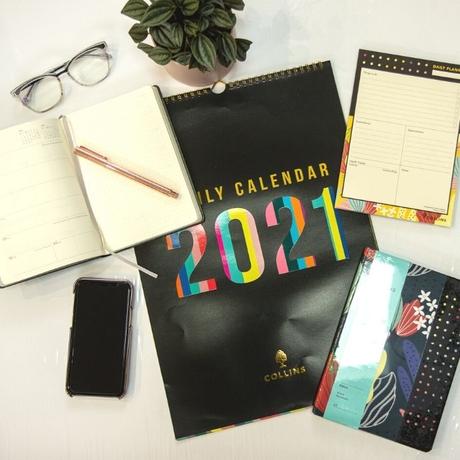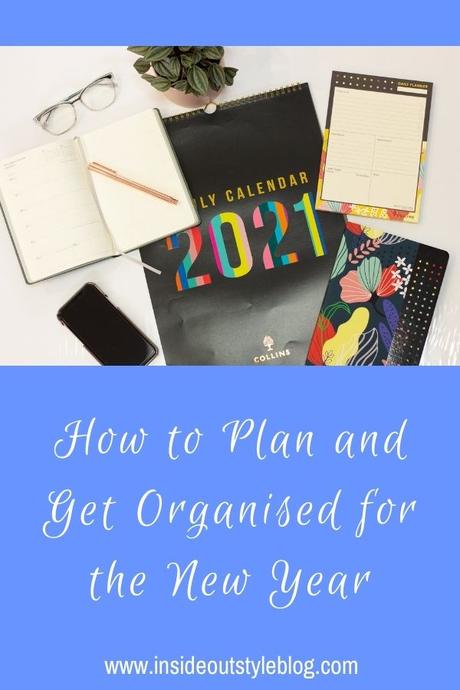



It’s hard to believe (like I say this EVERY year) but it’s almost Christmas and this year is nearly over.
And I, like many, am starting to think about the next year. What I want to achieve, what I want to do (maybe even leave the house).
It’s a great time to reflect on the past year, look at what worked for you and what you’d like to change. To take stock so that you can make the next year into one that is fulfilling to you (even when those strange world events happen that you have no control over).
With this in mind, I thought I’d offer you some tips for not only improving your style but also allowing these same principles to flow into the rest of your life.
List What You Learned from the Past Year
The first step in getting your next year a bit sorted out … is to figure out what you learned this past year.
Now 2020 has been a mightliy unusual year, that’s for sure. And it’s really highlighted things about ourselves and our environments, we may have not noticed in the past because we’ve always been so busy.
With being in lockdown for much of the year, a spotlight has been shone on the home and what really matters to you with regards to how you live and who you spend time with.
Grab a notebook and pen and write down:
- What you loved
- What you really missed this year (cos it was a strange year)
- What you hated
- What you learned (here is what I learned about being happy in lockdown)
You may want to categorise this into:
- Work
- Family
- Social
- Home
- Style
- Health
Why categorise? Well, our brains find it easier to process information when like items are together.
Now take this list and look at it. How much of the What You Hated list can you just delete from your life and stop doing it?
How can you add MORE of What You Loved into your life for the next year? Is it possible to schedule more of this into your life?
What about what you missed this year? Can you schedule that into your life going forwards? For me, what I missed most was having massages, so I know that now things have opened up again I need to schedule them in more regularly to my diary.
I for one have realised that I hate being busy all the time and that I need time and space and a creative outlet to just be without pressure.
Look at your list and you can start planning for the next year.
Remove everything possible from it that will not bring you joy.
Include more of what does bring you joy.
Make some goals relating to your list. Maybe you want to do more exercise or make times to catch up with friends (even if it is still on Zoom). Maybe you want to schedule some seasonal wardrobe declutter sessions or creating outfit playshops into your time so that when you are super busy, you’ve got outfits that make you feel and look stylish to hand (as you took a few photos or documented them in some way).
Now put these goals into your planner or diary (these days diaries are no longer just about dates and times, but many include goal trackers and space to write your daily gratitude list (which is an excellent thing to do – as the more your are grateful each day, the more you see what is good in the world rather than focusing on the negative).

Gorgeous and useful diaries, family calendar planners and notebooks from Collins to help you get and stay on track in the new year.
Do you have a planner or diary of some kind? I have to admit I’m still a paper diary girl. Sure I use the computer one to bing at me for some appointments, but I find that writing and planning my weeks on paper gives me a better overall picture of what my weeks and months look like and how much I’m trying to cram into them so that I can remember that as an introvert, I really have to schedule in alone time to stay sane.
Apparently I’m not alone, and in fact, according to Collins Debdenwho have been making diaries and planners for a long time, there is something in the physical act of writing down goals and scheduling plans into your diary that means they are more concrete. There is more mindfulness in the process of writing on paper and so we look for life-planners instead of just appointment diaries to help us achieve this.
I also keep a daily plan on my desk where I can write down everything I need to do that comes into my mind (to get it out of my head).
Daily Routines and Weekly Routines
When you think about your average day, where does it get cluttered and messy, both mentally and physically?
How can you clear out that mental or physical clutter so that it no longer slows you down?
Creating space to support healthy (both mental and physical) habits will mean that going forwards there is more of what you love and less of what you hate.
For example, do you want to get your outfit out the night before? Or if you’re a mood dresser, do you have an album on your phone of possible outfit options that you can flick through in the morning and see which fits that day’s mood, so you don’t have to spend too much time thinking about it?
Do you meal plan for the week (or even meal prep as well)? I’ve found that doing this on the weekend, just planning out what we’re going to eat, and popping it onto a board on the fridge means I shop more effectively as I know what I need, plus at the end of the work day I don’t have to make decisions and think up what we might be eating for dinner. This has cleared some of my mental clutter!
Put your exercise clothes out the night before so that you can easily climb into them in the morning and go for that walk/run/exercise class.
Organisation is a tool to help you have a more fulfilled life, not a burden that weighs you down. The key to organisation is to find a way that works for you!
I love this quote from Julie Morgenstern (a well-known organiser) “You’re not lazy, your systems just aren’t working for you.”
Look at where you are organised, see what kind of system you have created around this, then apply this to the rest of your life and you’ll be organised in a way that works for you, not against your personality.
You may need to see things to remember where they are, or prefer everything hidden. You may need a macro organisation system, or maybe a micro and detailed one. There is no one way, or right way. It’s just the way that works best for you and makes your life EASIER.
If you’re just tripping over everything in your wardrobe, or have piles of laundry that are never put away because those micro-organising systems that other people recommend don’t work for you, it might be time to re-look at how your wardrobe works and how you prefer to organize.
One of the things I do, is when washing comes out of the machine, I put it onto hangers, then hang to dry on the hanger. Then I just have to put the hanger in the wardrobe – I’ve cut out that middle step and it’s so much easier and time-efficient!
Schedule in self-care to your daily and weekly diary. You need recovery time around stressful things. If you balance them you’re not overloading your nervous system.
Clear the Mental Clutter
One of the key principles of David Allen’s book Getting Things Done is about clearing the mental clutter by writing every “to do” that is floating around inside your head down. As he says, “your mind is built for having ideas, not for storing them”. If you write down all those things that you keep thinking “must do that” you will then be able to plan when to do it and how.
Break down big tasks into all the small steps to get it done. If you have a large task with many steps, but don’t list out the steps, you’ll end up going nowhere, or avoiding it because it’s too big and you never have enough time to do it all (or will hit that dreaded overwhelm). Instead, break down large tasks into the next action step you can take. List them down, then tick them off as you go. You’ll be able to see more clearly what needs to be done and know that you can tick off in the 5 or 15 minutes you have a task or two that’s not too big, moving you towards completing your goal.
Take 2 Minutes Each Day
Look at what is on your list each day and see if everything on your list is in line with your values, goals and purpose. If they are not helping you move you towards your goals (and some of those goals may be goals relating to enjoying yourself, connecting with people you value and other pleasurable pursuits, not just career or work-related goals), then can they be removed from your list?
Write down 3 things you’re grateful for each day so you see more of what is good in your life.
Make sure when you’re planning your days to include fun things as well as the hard work. Balance is important and you will function more efficiently and effectively when you include fun things that you enjoy that give you a break from the harder stuff (which of course still needs to be done).
The 3 Hour Reset
No matter what has already happened. If you’ve not exercised, made poor eating choices, or some other thing you might normally beat yourself up over. Do a reset. Rather than waiting til the next day, what matters most is what happens in the NEXT 3 hours (not the past) and then the 3 hours after that.
Celebrate Your Achievements
No matter how small. Celebrate what you have achieved each day.
We always overestimate what we can achieve in a day or a year, but underestimate how much can be achieved in 5 or 10 years when you take just one small step at a time.
Remember, those small improvements, anything small and easily repeatable is more likely to end up sticking as a habit and will get you further in the long term.






